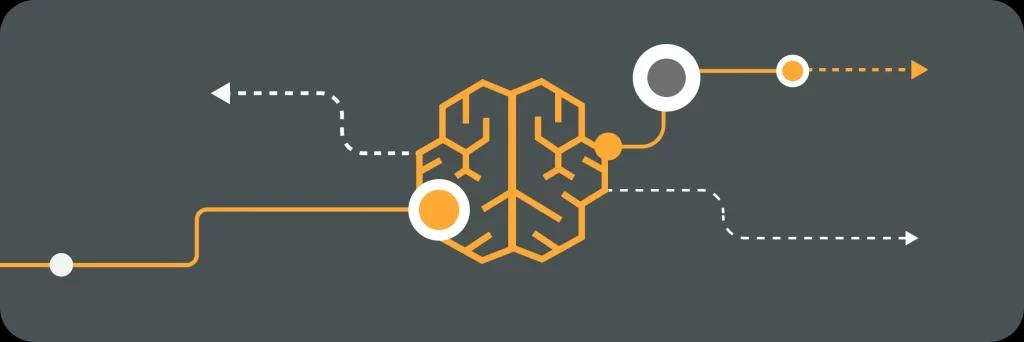Decentralized Control in AI Systems


In recent years, the integration of artificial intelligence (AI) into various applications has raised critical questions about control, governance, and accountability. As AI technologies continue to evolve, the concept of decentralized control has come to the forefront, promising to create systems that are more robust, equitable, and secure. This article explores the facets of decentralized control in AI systems, including its architecture, benefits, challenges, and future prospects.
Understanding Decentralized Control
The Concept of Decentralization in AI
Decentralization in AI refers to distributing decision-making, governance, and system management away from a central authority. Traditional AI systems often rely on centralized control, where a single entity oversees the algorithms and data, making decisions that affect users and stakeholders. In contrast, decentralized systems empower multiple participants to contribute to AI governance, often leveraging blockchain or peer-to-peer (P2P) technologies.
This shift towards decentralization is inspired by the need for improved transparency and accountability. Stakeholders can engage in the decision-making process, ensuring that diverse perspectives are considered. Moreover, decentralization can mitigate the risks associated with data biases and ethical dilemmas, as control is shared among many rather than concentrated in the hands of a few. For instance, in a decentralized AI model, users can validate the data being fed into algorithms, ensuring that it is representative and free from systemic biases that could skew outcomes. This collaborative approach not only enhances the quality of the data but also fosters a sense of community ownership over the technology.
Importance of Decentralized Control in AI
The significance of decentralized control in AI systems lies in its ability to foster greater trust among users. When individuals can see how decisions are made and have a say in governance, they are more likely to accept and utilize AI technologies. This trust is crucial in applications where AI decisions have profound consequences, such as healthcare, finance, and public safety. For example, in medical diagnostics, a decentralized approach allows healthcare professionals to contribute their expertise and insights, leading to more accurate and equitable outcomes for patients. By involving a broader range of stakeholders, the system can adapt to the nuanced needs of different communities.
Moreover, decentralized control can enhance innovation by providing an open framework for collaboration. Developers and users can share insights, improve algorithms, and adapt systems to meet their needs more swiftly. This collaborative environment not only accelerates the pace of technological advancement but also democratizes access to AI capabilities. Startups and smaller organizations can leverage decentralized platforms to compete with larger corporations, fostering a more diverse ecosystem of solutions. Overall, decentralized control lays the foundation for a more inclusive and ethical AI landscape, where the benefits of AI technology can be distributed more equitably across society, reducing the digital divide and empowering underserved communities.
The Architecture of Decentralized AI Systems
Components of Decentralized AI Systems
The architecture of decentralized AI systems consists of several key components that function collaboratively to ensure a seamless operation. These include distributed databases, which store data in multiple locations rather than a single server, enhancing security and accessibility. Additionally, decentralized networks facilitate communication among nodes, enabling real-time data sharing and processing. This architecture not only improves resilience against data breaches but also allows for a more robust data integrity model, as the distributed nature of the system makes it significantly harder for malicious actors to manipulate or corrupt the data.
Machine learning models in decentralized AI systems are often trained collaboratively using federated learning techniques. This approach allows multiple participants to contribute to model training without compromising data privacy, as raw data remains on its respective devices instead of being centrally aggregated. Furthermore, this method encourages a diverse set of data inputs, which can enhance the model’s accuracy and generalizability. By leveraging the unique data characteristics from various sources, decentralized AI can create more nuanced and effective algorithms that cater to a broader range of applications and user needs.
Designing Decentralized AI Systems
Designing decentralized AI systems requires a nuanced understanding of both technical and social aspects. Developers must ensure that the architecture supports scalability and resilience, allowing for effective functioning even when parts of the network fail. Moreover, careful thought must be given to governance models, deciding how stakeholders will participate in decision-making and conflict resolution. This governance structure is vital for maintaining trust among participants, as it establishes clear protocols for accountability and transparency, which are essential for fostering collaboration in a decentralized environment.
User engagement is also crucial in the design process. Feedback mechanisms need to be in place so that users can report issues or suggest improvements, creating a dynamic and responsive system that evolves based on real-world performance and user needs. Additionally, educational resources and community support can empower users to better understand the system’s functionalities, encouraging more active participation. By fostering a sense of ownership and collaboration among users, decentralized AI systems can achieve higher levels of innovation and adaptability, ultimately leading to more effective solutions tailored to the diverse challenges they aim to address.
Benefits of Decentralized Control in AI
Enhanced System Resilience
One of the primary benefits of decentralized control in AI systems is enhanced resilience. By distributing data and decision-making across a network, decentralized systems can better withstand failures or attacks. If one node or component goes down, others can continue to operate, reducing the risk of total system failures.
This resilience is especially pertinent in scenarios where AI systems serve critical functions, such as disaster response or financial transactions. In these cases, interruptions can lead to dire consequences, making a robust, decentralized design essential. For instance, during natural disasters, decentralized AI can facilitate real-time communication between various agencies and organizations, ensuring that vital information flows uninterruptedly. This adaptability not only allows for a quicker response but also fosters collaboration among different entities, enhancing overall effectiveness in crisis management.
Improved Data Privacy and Security
Data privacy and security concerns are paramount in any discussion about AI. Decentralized control can significantly enhance these aspects by ensuring that sensitive data is not stored in a single location, which is a common target for hackers. Instead, data can remain on local devices while only necessary insights are shared across the network.
Furthermore, by using cryptographic techniques common in decentralized systems, users can maintain control over their data and how it is used, increasing trust in AI applications and limiting the potential for misuse of information. This is particularly important in sectors like healthcare, where patient confidentiality is critical. By decentralizing data storage, healthcare providers can ensure that sensitive patient information is not only protected from unauthorized access but also that patients have a say in how their data is utilized for research or treatment purposes. This empowerment can lead to greater patient engagement and compliance, ultimately enhancing the quality of care delivered.
Challenges in Implementing Decentralized Control in AI
Technical Difficulties and Limitations
Despite the advantages of decentralized control in AI, there are significant technical challenges to its implementation. Creating efficient algorithms that can operate effectively in a decentralized manner requires innovative approaches, as traditional methods may not scale well when applied to distributed environments.
Additionally, the synchronization of operations across multiple nodes can lead to latency issues. Developers must address these complexities to ensure that decentralized systems remain responsive and effective in real-time applications. Furthermore, the inherent variability in network conditions can introduce additional unpredictability, necessitating robust mechanisms for error detection and recovery. This variability can affect the performance of machine learning models, which rely heavily on consistent data flow and processing capabilities. As such, engineers are tasked with developing adaptive algorithms that can dynamically adjust to fluctuating conditions while maintaining high levels of accuracy and reliability.
Regulatory and Ethical Considerations
As the shift towards decentralized AI systems gains momentum, regulatory and ethical considerations become increasingly important. The absence of a central authority can complicate accountability and compliance with laws governing data protection and usage. There needs to be clarity on who is held accountable when things go wrong in a decentralized setting.
Moreover, ethical implications regarding algorithmic bias and decision transparency must be thoroughly examined. Developing standardized protocols for governance and ethical oversight in decentralized AI can help address these concerns. The challenge lies not only in creating these frameworks but also in ensuring they are adaptable to the diverse range of applications that decentralized AI might serve. For instance, in sectors like healthcare, where patient data privacy is paramount, the ethical stakes are particularly high. Stakeholders must engage in ongoing dialogue to establish best practices that prioritize fairness and inclusivity while fostering innovation. This requires collaboration among technologists, ethicists, and policymakers to create a comprehensive approach that safeguards public interest while promoting technological advancement.
Future of Decentralized Control in AI
Emerging Trends in Decentralized AI
The future of decentralized control in AI is promising and characterized by emerging trends that could reshape the technological landscape. One such trend is the rise of decentralized finance (DeFi) applications that employ AI for trading, risk assessment, and fraud detection, showcasing the potential for decentralized models to thrive in complex, high-stakes environments.
Additionally, blockchain technology is expanding beyond cryptocurrencies, seeking applications in AI ethics, auditing, and accountability mechanisms. This evolution could pave the way for more transparent and trustworthy AI systems capable of achieving broad public acceptance.
Potential Impact on Various Industries
The potential impact of decentralized control in AI extends across numerous industries, from healthcare and finance to manufacturing and agriculture. In healthcare, decentralized AI could facilitate collaborative research while safeguarding patient privacy through federated learning.
In agriculture, farmers can harness decentralized AI systems to optimize crop yields and resource usage by pooling data insights without exposing their individual farming practices. Such possibilities highlight the transformative power of decentralized control, ushering in a new era of AI innovation and collaboration.
Your DevOps Guide: Essential Reads for Teams of All Sizes
Elevate Your Business with Premier DevOps Solutions. Stay ahead in the fast-paced world of technology with our professional DevOps services. Subscribe to learn how we can transform your business operations, enhance efficiency, and drive innovation.






